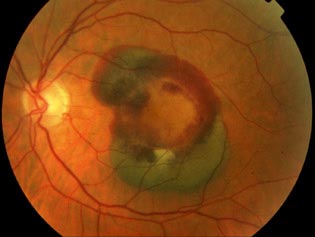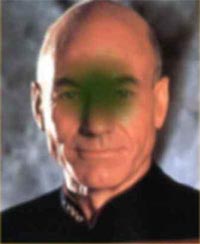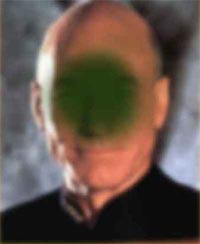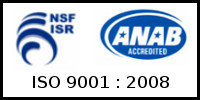
Macular Degeneration

Q: What is macular degeneration?
A. Macula is the most important area in the retina and is responsible for central visual clarity. Macular degeneration is breakdown of metabolism of highly specialized cells at the macula. This leads to an accumulation of end products and may heal with scar formation or sometimes cause the growth of new blood vessels in this critical area.

Q. What are the risk factors?
A. Risk factors include high blood pressure obesity, over-exposure to sunlight, high levels of dietary fat also may be a risk factor for AMD. These risk factors are still being evaluated.
Q. How will I know that I have macular degeneration?
Early signs: straight lines appearing wavy, fuzzy vision, and shadowy areas in your central vision, inability to read, central vision is blurred and periphery clear; If you have any of these complain consult an eye surgeon.

Q. What are the routine tests done for macular degeneration?
A. Some of the routinely test done includes vision examination, Amsler grid, pressure checkup, Dilated fundus examination by special lenses. If necessary OCT or fundus fluorescein angiography is advised.
Q: What are the treatments available for macular degeneration?
A. For the scared or dry type, there is no treatment and for the wet type, a) burn the entire area using Transpupillary Thermotherapy (TTT) or b) laser that area after stimulating it with special injection with Photodynamic Therapy (PDT) or c)special injections; these injections forms the latest modality of the macular degeneration.

Q: What are these injections?
A. As stated earlier there are new blood vessels forming below the macula. It has been found that a chemical called VEGF (Vascular Endothelial Growth Factor) is responsible for these new vessels. The new injections namely Lucentis, Macugen etc. are anti VEGF chemicals i.e. they block new blood vessels from developing.
Q: How are these injection given?
A. These injections are given in micro dosages in to the eyeball at monthly intervals depending on patient's response. 3-6 injections are given and in some even more injections may be required.
Q: What are the side effects of these injections?
A. These chemicals per se are relatively well tolerated. The injection procedure itself may rarely cause cataract, retinal haemorrhage, retinal detachment, glaucoma or infection.
Q: Why are these injections so expensive?
A. These are original research molecules and are therefore expensive.
Q: What can I expect from these injections?
A. Stabilization of your vision is the most frequently seen result however some patients are also seen improvement in vision.
Q: Does insurance cover these injections?
A. Yes, multiple insurance schemes are available which cover ARMD & you are eligible for full reimbursement.
Eye Care - Patient Education

